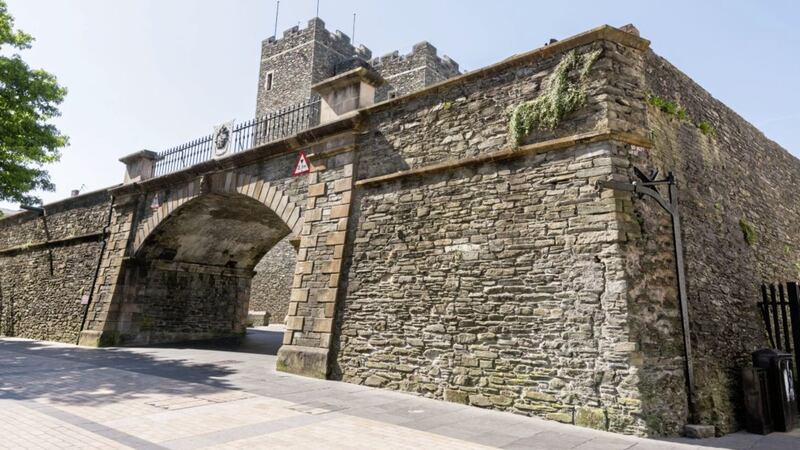There is an ominous sense of Stormont making the same mistake with Derry that was made half a century ago.
Resentment is mounting in the city over lack of university expansion, industrial development and infrastructure, with a sense that all effort is directed towards Belfast.
Complacency is in evidence at Stormont, where ministers and assembly members can point to the A6 dual carriageway, improvements to the rail service and the Derry and Strabane city deal.
Patience on both sides is wearing thin. Last week, DUP South Belfast MLA Christopher Stalford dismissed some of the criticism from the North West as “envy” and added “you will not pull Londonderry up by dragging Belfast down.”
The most worrying lesson of history is how easily this argument can pass the point of no return.
In 1968, unable to ignore discontent in Derry, the old Stormont government abolished the city’s council, replaced it with a powerful cross-community committee and gave it a regeneration budget of £2 billion at today’s prices - the ultimate ‘city deal’.
It was too late. By the time the investment in housing, jobs and infrastructure was apparent the Troubles were well into their first decade.
That is not to say the money was wasted. Derry had a reputation for being relatively peaceful in the 1980s and 1990s. The investment of the 1970s deserves some credit but nobody ended up with the political credit, leaving a legacy of mistrust that appears to be coming full circle.
The moral of the story is that if you are going to make this kind of investment you need to do so at the earliest opportunity, rather than twiddling your thumbs waiting for business cases and wondering if support for dissident republicans is still growing. You also need to pin down the political credit, by being generous in word and deed and having your intentions acknowledged.
Alas, the modern world is not that simple. In 1968, a cheque was effectively written to build 10,000 new homes and subsidise 12,000 jobs in Derry, for a population of 55,000. Today, Stormont discusses building more houses by tinkering with the borrowing rules for housing associations, while subsidising jobs is often a breach of EU law. City deals involve complex funding models and public-private partnerships. Ministers and officials must show spending is needed and ‘Derry is restless’ does not count. Any major investment, public or private, is meant to demonstrate value for money before it leaves the page.
Even when large projects get the go-ahead, such as the A5 and A6 dual-carriageways, planning rows and budgetary nit-picking drain them of all visionary quality.
The closest Derry has come to a regeneration drive since the Good Friday Agreement was the Ilex development agency, modelled on Belfast’s Laganside Corporation. All it managed to show was that small cities are less attractive to investors than big cities, all other things being equal.
Speaking to Stormont’s economy committee last week, SDLP Foyle MLA Sinead McLoughlin proposed addressing this issue through a sub-regional policy.
Being a region, Northern Ireland does not have regional policy in the way England does, for example. The executive can pursue ‘balanced’ regional growth but this makes it harder to target areas in particular.
McLaughlin’s proposal was supported by Sinn Féin’s John O’Dowd, who suggested a sub-regional policy is also needed for north Armagh, Northern Ireland’s third urban centre (and his constituency.)
However, unionists seemed genuinely mystified by the idea. As far as they are concerned, everywhere is getting a fair crack at the whip and if places outside Belfast are falling behind that is just the law of the economic jungle.
It should not be that difficult to understand that Derry might benefit from a ‘Northwestern Powerhouse’ project, modelled on Conservative policy in the north of England, or that the executive should promote this for the sake of Northern Ireland as a whole.
DUP ministers point out that providing industrial estates and university places has not in itself attracted business and students but this is a bare-bones policy limit Stormont has set on itself. More detailed approaches to growing small cities have been tested and proven around the world.
The DUP presumably knows a £20 billion bridge to Scotland is a joke. The punchline sours when it will not promote ambitious investment in Derry.









